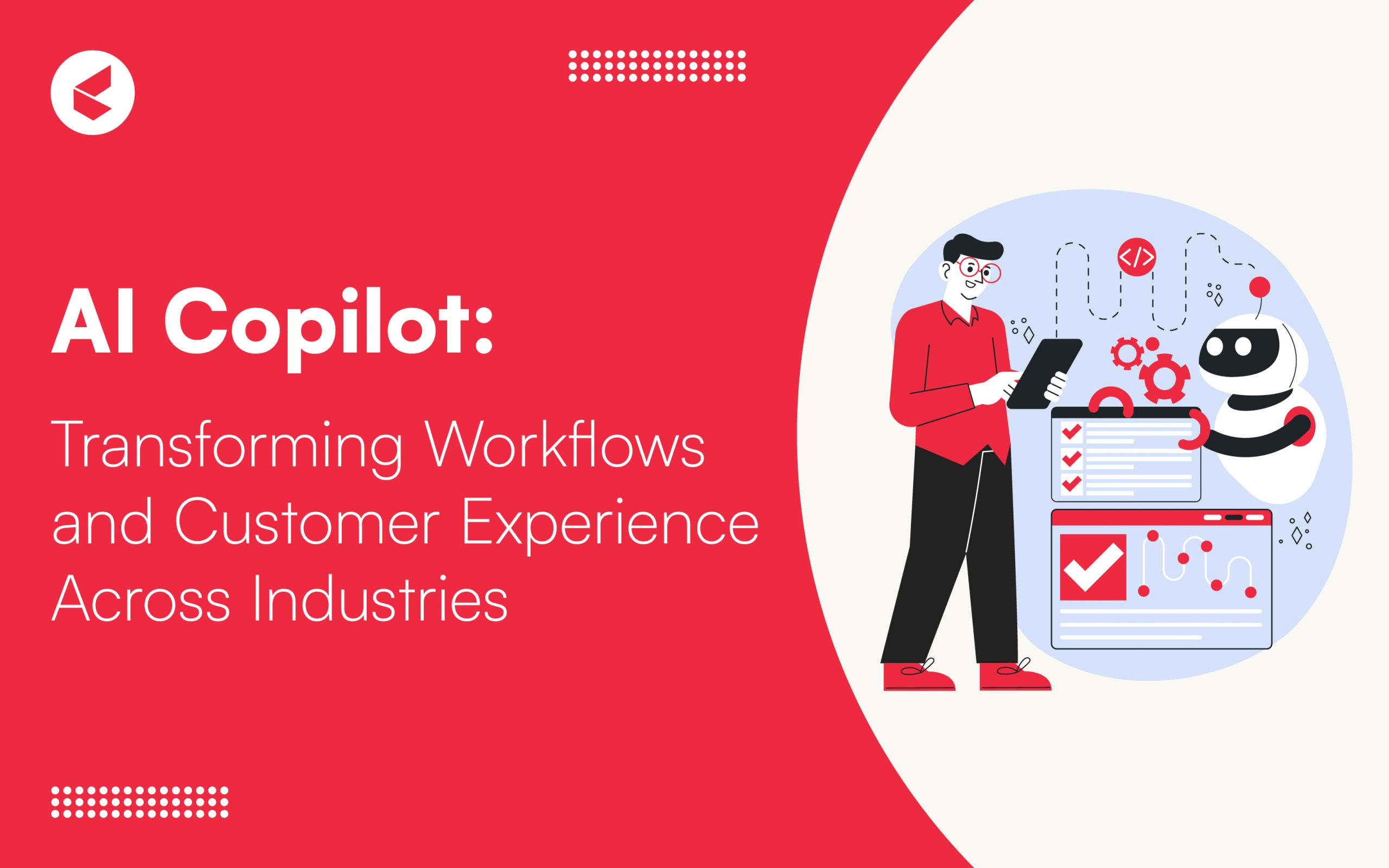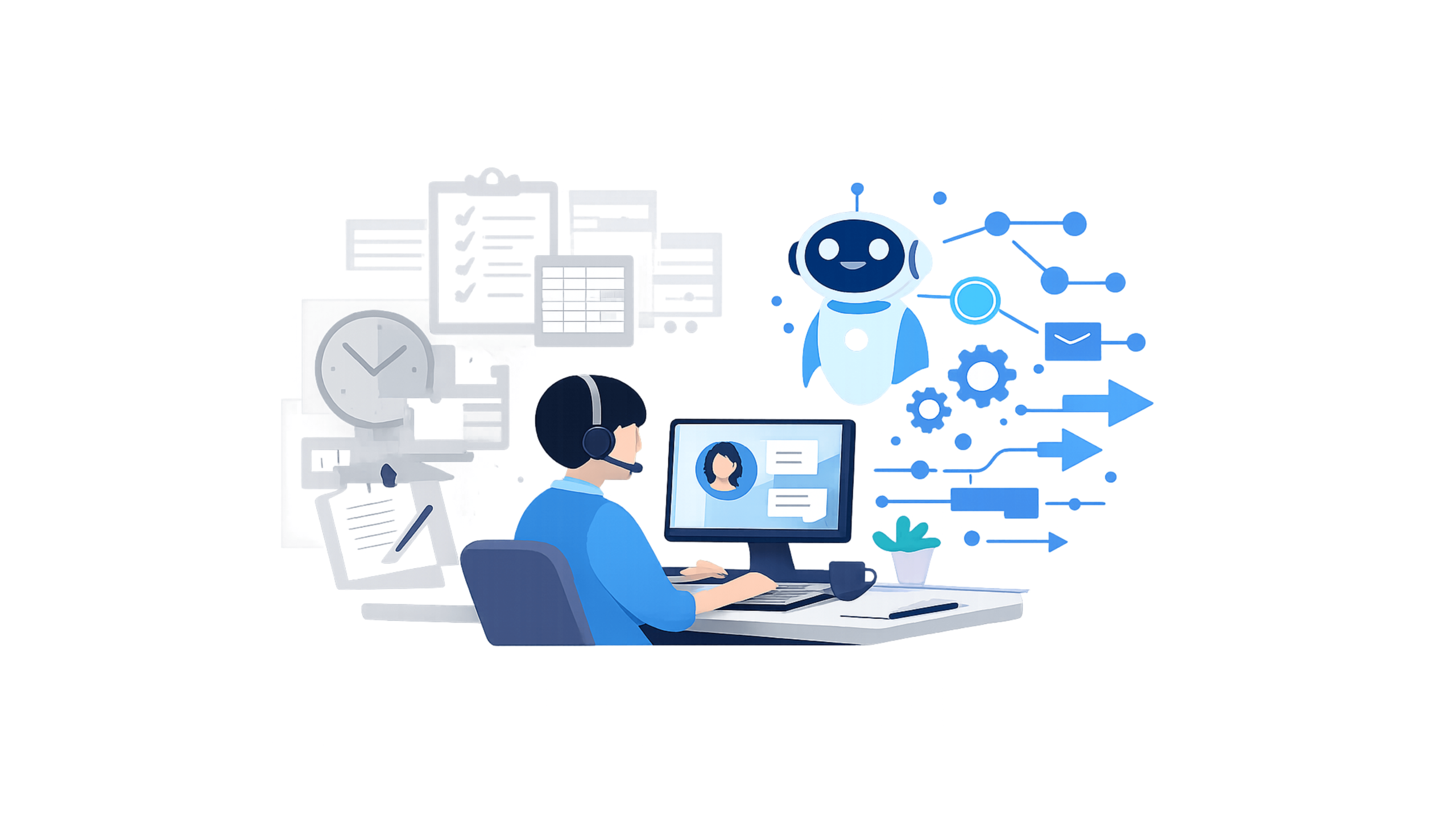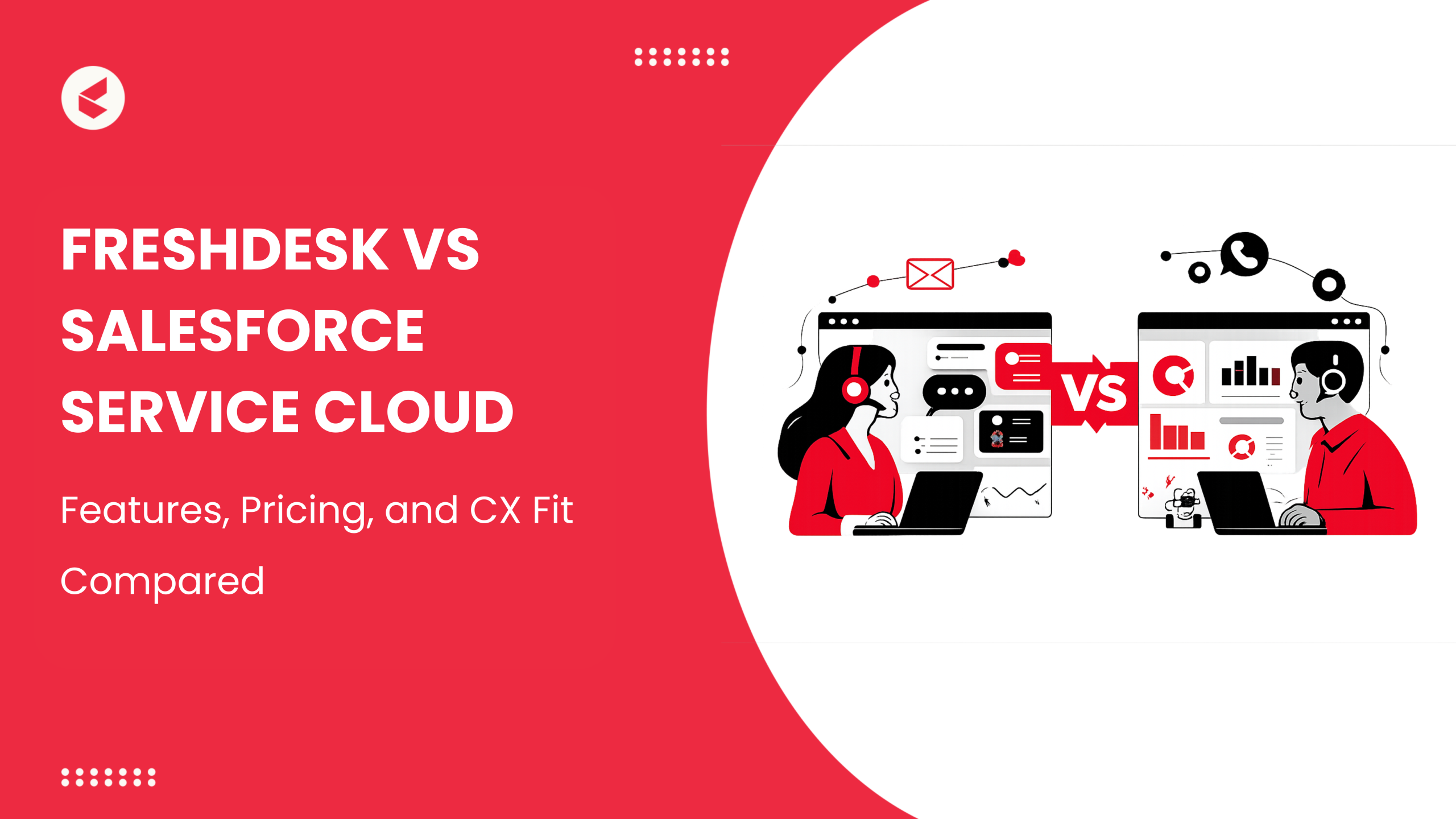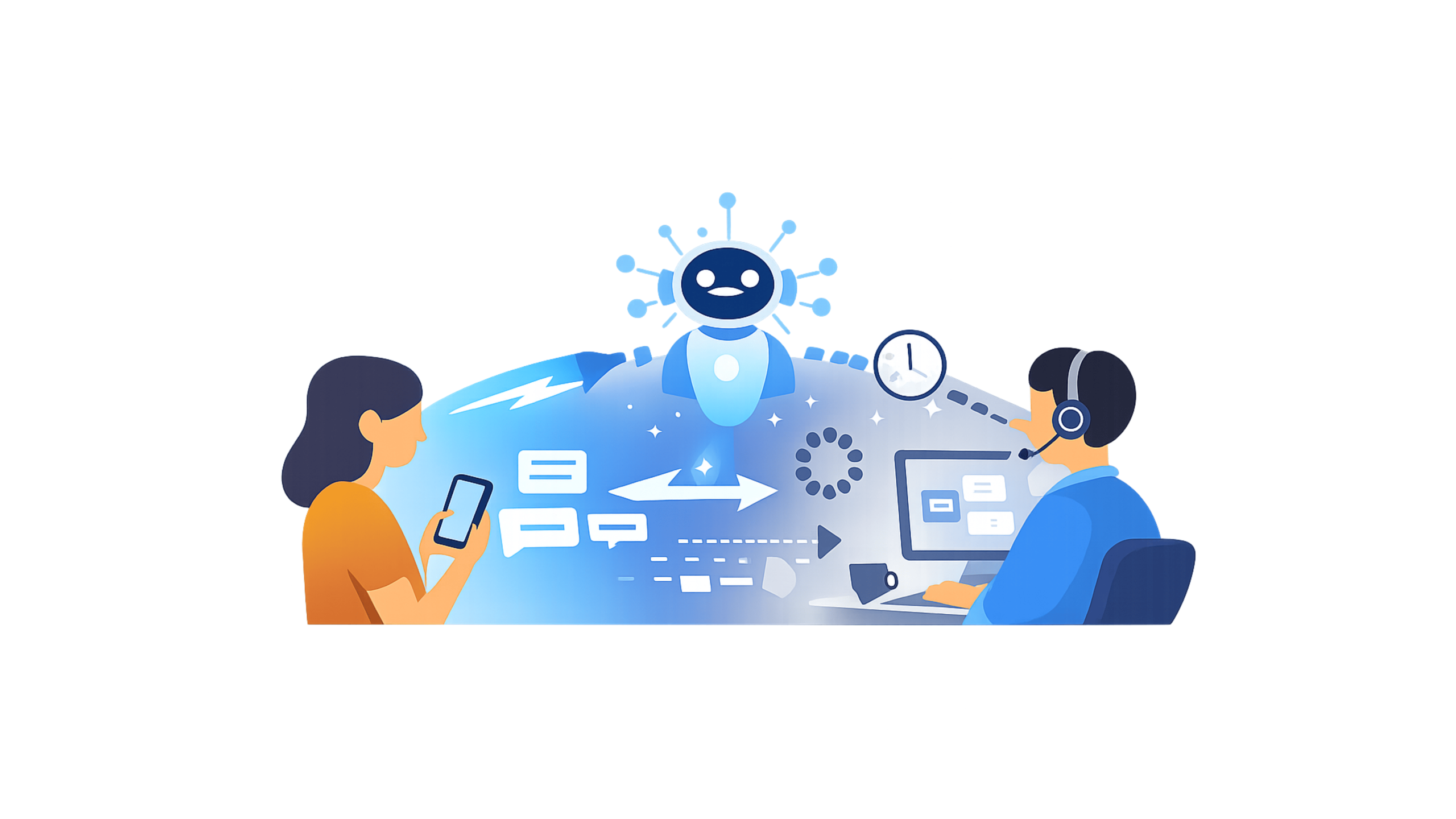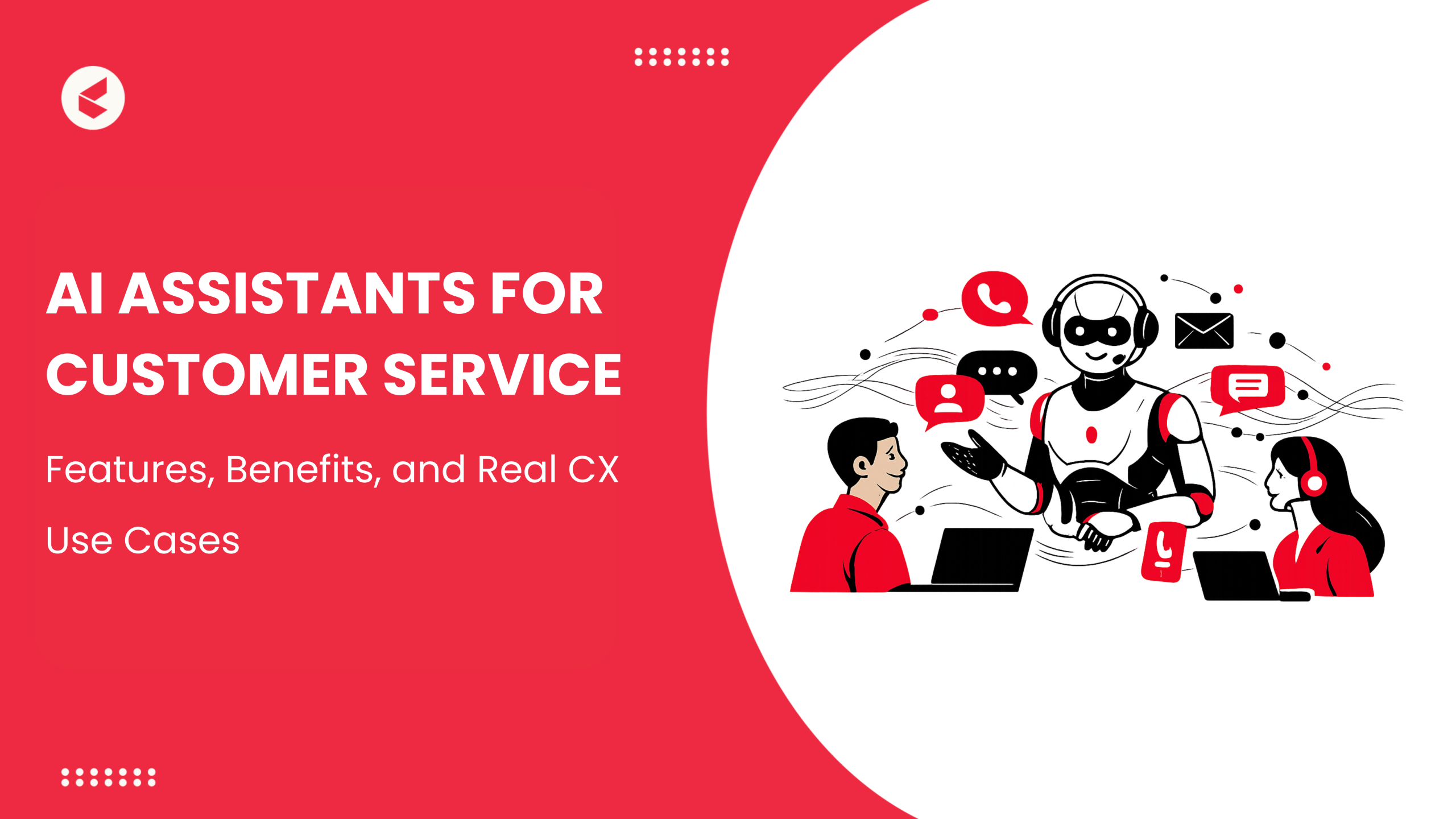When you hear “copilot,” you probably think of the aviation industry—a trusted partner helping the captain navigate the skies.
Today, AI copilot has taken flight in the business world, offering support across workflows and revolutionizing customer experiences.
An AI copilot is a smart assistant integrated into workflows to enhance decision-making and productivity. Unlike AI agents and chatbots, which work independently, AI copilots collaborate with human teams and AI agents, automating routine tasks and predicting outcomes to free up time for strategic thinking.
Its impact is transformative. By reducing repetitive work, improving efficiency, and enhancing customer experiences, AI copilots represent the next frontier of AI adoption—partnering with human teams to reshape industries.
According to Gartner, generative AI will be used by 80% of customer care teams by 2025 to improve agent efficiency and customer experience. This is your opportunity to fully harness AI’s potential and use AI copilots to future-proof your business. Don’t just keep up—take the lead.
What Is an AI Copilot?
An AI copilot is a virtual assistant designed to simplify complex tasks and improve productivity. Think of it as a reliable digital partner who works alongside your agents to achieve goals faster and with greater accuracy.
Unlike autonomous chatbots or AI agents, AI copilots are collaborative partners that augment human capabilities. They offer real-time support during customer interactions.
For instance, an AI copilot can extract critical customer data and suggest resolution strategies while ensuring agents maintain full control.
This synergy between AI copilots, agents, and AI systems leads to a dynamic customer support environment. It combines efficiency, empathy, and intelligence, taking customer service to the next level.
Key Characteristics of AI Copilots in Customer Service:
- Context Awareness: Understands customer history, preferences, and sentiment to personalize interactions.
- Proactive Assistance: Recommends next-best actions to agents during live interactions.
- Real-Time Knowledge Access: Delivers instant access to internal resources, reducing time spent searching for information.
- Intelligence: Analyzes vast amounts of consumer data to spot patterns and offer useful insights.
Examples in Action:
- Smart Assistance for Ticket Handling: The AI copilot works with customer support representatives to examine ticket information and recommend pertinent actions, such as processing refunds, starting cancellations, or raising concerns, so that representatives may react quickly and precisely.
- Real-Time Insights: By giving agents access to real-time customer sentiment analysis, they may give personalized product recommendations and modify their strategy according to the customer’s mood.
- Proactive Engagement with Customers: The copilot identifies trends that point to consumer discontent and provides agents with proactive de-escalation techniques to address problems before they get more serious.
Why Is It Revolutionary?
According to a McKinsey study, AI copilots can boost productivity by up to 30 to 45 percent. In essence, an AI copilot doesn’t just assist—it transforms how you work. From reducing errors to boosting speed, it’s the next step in intelligent collaboration.
How AI Copilot Works: Key Technologies
An AI Copilot is powered by cutting-edge technologies to empower customer service and support teams. These technologies work together to process data, predict needs, and execute tasks with precision.
Core Technologies Powering AI Copilots
1. NLP, or natural language processing
AI copilots can understand and react to human language thanks to NLP. It interprets consumer inquiries, determines purpose, and produces contextually appropriate answers.
Example: AI can identify annoyance in a customer’s communication and provide sympathetic alternatives.
2. Large Language Models (LLMs)
LLMs form the backbone of most AI copilots. These models utilize extensive datasets to deliver precise and dynamic answers. Take the Kapture’s AI Copilot, for instance. It can summarize conversations and generate concise responses.
- Example: Handling multiple interactions simultaneously, ensuring faster ticket resolutions.
3. Generative AI
Generative AI enhances creativity in problem-solving. It doesn’t just find answers but creates personalized solutions. It drafts responses in conversational tones, ensuring a human-like interaction.
- Example: With GenAI assistance, the copilot analyzes conversation history and knowledge base articles to generate contextual responses, enabling agents to resolve customer issues more quickly and streamline response times.
Advanced Capabilities
- Adaptive Learning: The copilot evolves with every interaction, refining its responses and processes for improved efficiency.
- Integrated Decision-Making: They evaluate data from multiple sources, such as CX systems and analytics platforms, to recommend optimal actions.
- Workflow Orchestration: AI copilots work alongside humans to provide suggestions for actions like processing refunds or escalating issues.
How It All Comes Together
Behind the scenes, copilots manage complex workflows. They don’t act in isolation. An AI copilot integrates smoothly into your CX system and customer service tools, processing massive amounts of data in real time.
Imagine a customer inquiring about a delayed order.
The AI copilot:
- Pulls the tracking details
- Identifies the cause of the delay
- Drafts an apology message with a discount offer—all in seconds.
From identifying the root cause of issues to executing resolutions across systems, they minimize manual effort. This seamless coordination ensures customer service teams can focus on strategy, leaving operational tasks to the AI copilot. It’s not just an assistant; it’s a partner in delivering excellence.
Benefits of Using AI Copilot in Customer Experience
AI copilots are changing how businesses interact with customers. They help businesses outshine competitors while delivering unmatched customer value.
1. Instant Problem-Solving Capabilities
AI copilots help agents improve the customer experience by utilizing data from integrated CX systems to personalize responses. In essence, copilot technology enables agents to communicate more efficiently, resolve issues quicker, and provide superior service.
For example, during a product troubleshooting call, the copilot highlights the relevant section of the manual and guides the agent through the solution.
2. Turn Data Overload into Actionable Insights
Forget sifting through endless records. AI copilots analyze data in real time to guide agents with tailored recommendations.
For instance, a loyalty program inquiry prompts the copilot to flag eligible rewards and upsell opportunities. This ensures the agent doesn’t miss a chance to delight the customer.
3. Uninterrupted Agent Focus on High-Value Tasks
AI copilots automate repetitive tasks such as verifying details and populating customer data, allowing agents to concentrate on more complex and impactful issues.
AI copilots help with writing relavant responses to customer queries, increasing agent productivity and allowing agents to be able to respond to queries in the most appropriate manner.
Use Cases of AI Copilot in Different Industries
AI copilots excel as collaborative tools, working alongside agents to elevate customer service.
Let’s explore their applications in key industries:
1. E-commerce: Personalized Shopping Assistance
AI copilots enable agents to deliver quick and tailored solutions.
- Example: A leading online marketplace uses an AI copilot to assist agents in recommending products, tracking orders, and resolving refund requests based on customer history.
- Impact: Enhanced personalization fosters trust and ensures consistent service quality, impressing customers with every interaction.
2. Healthcare: Precision Support for Patients
AI copilots empower agents to provide empathetic, accurate assistance.
- Example: A hospital equips agents with an AI copilot to access medical records, schedule appointments, and offer tailored healthcare guidance.
- Impact: Patients receive faster, informed support, while staff focus on critical medical care.
3. BFSI (Banking, Financial Services, and Insurance): Smarter Client Interactions
AI copilots aid agents in delivering data-driven financial advice.
- Example: A bank’s support team uses AI copilots to analyze customer spending patterns and suggest relevant savings plans or credit options.
- Impact: Customers trust advisors more, leading to stronger relationships and better financial outcomes.
4. Travel: Enhancing Booking and Trip Support
AI copilots assist agents in resolving travel-related queries with precision.
- Example: A travel agency deploys an AI copilot to help agents manage bookings, recommend travel packages, and handle cancellations in real time.
- Impact: Customers enjoy seamless travel experiences, improving satisfaction and loyalty.
5. Retail: Empowering In-Store and Online Experiences
AI copilots enhance agent capabilities for customer interaction.
- Example: A global retailer equips its support team with an AI copilot to access inventory data, assist with personalized promotions, and address customer concerns quickly.
- Impact: Agents deliver superior customer experiences, driving retention and sales growth.
Challenges and Limitations of AI Copilot Technology
AI copilots assist agents effectively, but they come with challenges that require thoughtful resolution to maximize their potential. Addressing these ensures they augment, not hinder, operations.
1. Bias in Responses
AI copilots depend on training data, which may carry inherent biases.
- Example: A BFSI AI copilot might prioritize high-net-worth clients due to skewed data, overlooking others. This could alienate other customer groups.
- Solution: Regular audits of training data ensure inclusivity and fairness in responses.
2. Hallucinations
AI copilots might occasionally generate inaccurate or fabricated responses.
- Example: A retail AI copilot might advise a nonexistent discount policy, confusing agents and customers.
- Solution: Human review of AI outputs and regular accuracy checks ensure reliable guidance.
3. Data Security Risks
Handling sensitive customer data poses potential security threats.
- Example: An AI copilot mishandling encrypted client data can lead to breaches.
- Solution: Use copilots built with strong encryption and adherence to compliance standards.
5. Dependence on Human Collaboration
AI copilots cannot function as standalone tools and need clear inputs and human oversight.
- Example: Without agent intervention, an AI copilot might misinterpret complex queries, resulting in partial resolutions.
- Solution: Equip agents with training to effectively collaborate with AI copilots, leveraging their full potential.
Future Trends in AI Copilot Development
AI copilots are set to simplify workflows further, creating unprecedented opportunities for productivity and innovation.
Here’s what the future holds:
1. Enhanced Natural Language Processing (NLP)
Expect significant improvements in NLP, enabling copilots to understand complex queries and respond with greater contextual accuracy.
2. Focus on Ethical AI and Data Security
Ethical procedures are becoming more and more important as AI adoption increases. 67% of executives believe that putting ethical AI first is essential to fostering trust, per an EY survey. Strong security frameworks will lessen worries about data misuse.
3. Generative AI Enhancements
Generative AI will empower copilots to create high-quality responses. According to Gartner, Gen AI is the No. 1 AI solution implemented in companies.
What’s more? Gartner predicts that by 2026, more than 80% of enterprises will use generative AI-enabled applications across operations.
4. Continuous Learning Capabilities
AI copilots will learn dynamically from user interactions, improving accuracy over time. This adaptability ensures they stay relevant in evolving business landscapes.
AI copilots promise a transformative impact, combining advanced technology with personalized functionality to reshape industries and everyday workflows.
How to Choose the Right AI Copilot Solution?
Selecting the ideal AI copilot can significantly impact your productivity and business outcomes.
Here’s a quick guide to help you make the right choice:
- Assess Data Security: Ensure the solution adheres to stringent data security and compliance standards. 76% of businesses rank data security as a top priority when adopting AI solutions (The Morning Consult survey).
- Verify Integration Capabilities: Your AI copilot must integrate seamlessly with existing tools. For example, a customer support copilot should work with CX systems or email platforms for efficient workflows.
- Prioritize Customization: Opt for solutions tailored to your industry. A healthcare copilot should support HIPAA compliance, while a financial copilot must handle sensitive data securely.
- Check Scalability: Choose a scalable solution that grows with your business. Whether onboarding more users or expanding features, scalability ensures long-term value.
- Analyze User-Friendliness: Adopt a copilot that’s intuitive and easy to use. This minimizes training time and encourages faster adoption across teams.
- Evaluate ROI: Assess how the copilot will drive measurable results. Look for features that enhance efficiency, reduce costs, or improve decision-making.
- Involve Stakeholders: Gather feedback from team members who will use the copilot. Their input ensures the solution meets practical needs.
By focusing on these aspects, you’ll select a copilot that simplifies operations, promotes growth, and delivers tangible value.
Wrapping Up
Imagine agents no longer bogged down by repetitive tasks. Visualize faster resolutions, personalized interactions, and smooth workflows that scale with your business needs. With the right AI copilot, this isn’t the future; it’s your new reality.
The journey to smarter, more efficient operations starts with a solution that simplifies the complex and empowers your team to excel. Take charge today and harness the unmatched potential of AI-driven automation to elevate your service quality and customer satisfaction.
Kapture’s Agent Co-Pilot transforms customer service by automating mundane tasks like generating responses and conversation summaries while streamlining workflows. It equips your agents with instant, real-time access to knowledge, eliminating delays and boosting efficiency.
With contextual guidance and sentiment analysis, your team can create meaningful, personalized experiences that resonate with customers. All this is seamlessly integrated into your existing tools, thanks to over 1,000 pre-built API integrations designed to fit effortlessly into your operations.
When your agents are equipped with the right tools, they don’t just work—they excel. Take the leap with Kapture’s Agent Co-Pilot and redefine what’s possible in customer service. Automate smarter, resolve faster, and deliver exceptional service.
Book your free demo today and experience the difference firsthand!
FAQs
It automates repetitive tasks, drafts contextual responses, and provides real-time insights, helping agents resolve queries in record time. By reducing manual effort, it allows agents to focus on complex issues that require a human touch.
Kapture caters to diverse industries, including E-Commerce, FMCG, Travel, Retail, and BFSI, with customizable workflows and automation features. Its flexibility ensures that it adapts to each sector’s unique demands.
Kapture ensures robust data security and compliance, safeguarding sensitive information with industry-standard protocols. Regular audits and updates further strengthen its security framework.
